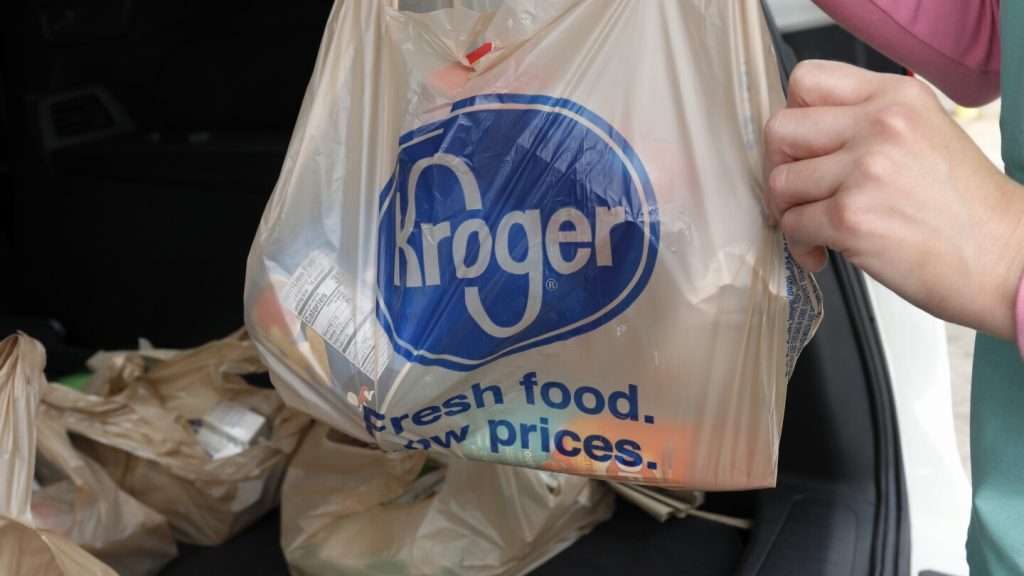The largest proposed grocery store merger in U.S. history is going to court as supermarket chains Kroger and Albertsons plan to merge. The merger aims to help them compete against rivals like Costco, but antitrust regulators from the Federal Trade Commission are concerned that the merger would eliminate competition and raise grocery prices in a time of high food price inflation. The federal district court judge in Portland, Oregon, will consider both sides and decide whether to grant the FTC’s request for a preliminary injunction to delay the merger while the FTC conducts an in-house case against the deal.
Kroger, based in Cincinnati, Ohio, operates 2,800 stores in 35 states, while Albertsons, based in Boise, Idaho, operates 2,273 stores in 34 states. Together, the companies employ around 710,000 people. The planned merger has faced opposition from the FTC and attorneys general from multiple states who argue that it would lead to higher prices, poorer quality, and lower wages for workers. The merger would consolidate around 13% of the grocery market under Kroger and Albertsons, creating concerns about reduced competition and potential antitrust issues.
Despite the opposition, Kroger and Albertsons have stated that they do not plan to close any stores if the merger goes through. They have agreed to sell 579 stores in areas where their stores overlap to C&S Wholesale Grocers. This decision came after the initial plan to divest 413 stores was deemed insufficient by the FTC, which pushed for more divestitures to promote competition. The potential outcome of the merger remains uncertain, as a preliminary injunction could delay the merger pending further legal proceedings and appeals.
If the Oregon judge issues a preliminary injunction against the merger, Kroger and Albertsons are likely to appeal to a higher court. The case could then move through the FTC’s administrative process, which may take a year or more. However, Kroger has expressed concerns about the FTC’s internal proceedings, arguing that they are unconstitutional and seeking to have the merger’s merits decided in federal court. The outcome of this legal battle could significantly impact the future of the proposed merger and the grocery industry as a whole.
Should the Oregon judge rule in favor of Kroger and Albertsons, the FTC would likely appeal the decision. However, it is rare for an appeals court to reverse a lower court’s ruling on a merger, so the FTC may choose to drop the challenge. The case could still proceed through the FTC’s administrative process, and the impact of the presidential election on the case remains uncertain, as the Biden administration has been aggressive in challenging anti-competitive mergers. Additionally, state courts in Colorado and Washington have separately sued to block the merger, highlighting the complex legal battle surrounding the proposed Kroger-Albertsons merger.
Overall, the outcome of the legal battle over the Kroger-Albertsons merger will have significant implications for the grocery industry and competition in the market. The decision of the federal court in Oregon, potential appeals, and challenges from multiple states add layers of complexity to the case. While Kroger and Albertsons aim to merge to increase their competitiveness in the market, concerns about reduced competition, higher prices, and quality issues have raised red flags for regulators and lawmakers. As the hearing in Portland unfolds, the future of the proposed merger hangs in the balance, impacting consumers, workers, and the broader grocery industry landscape.


